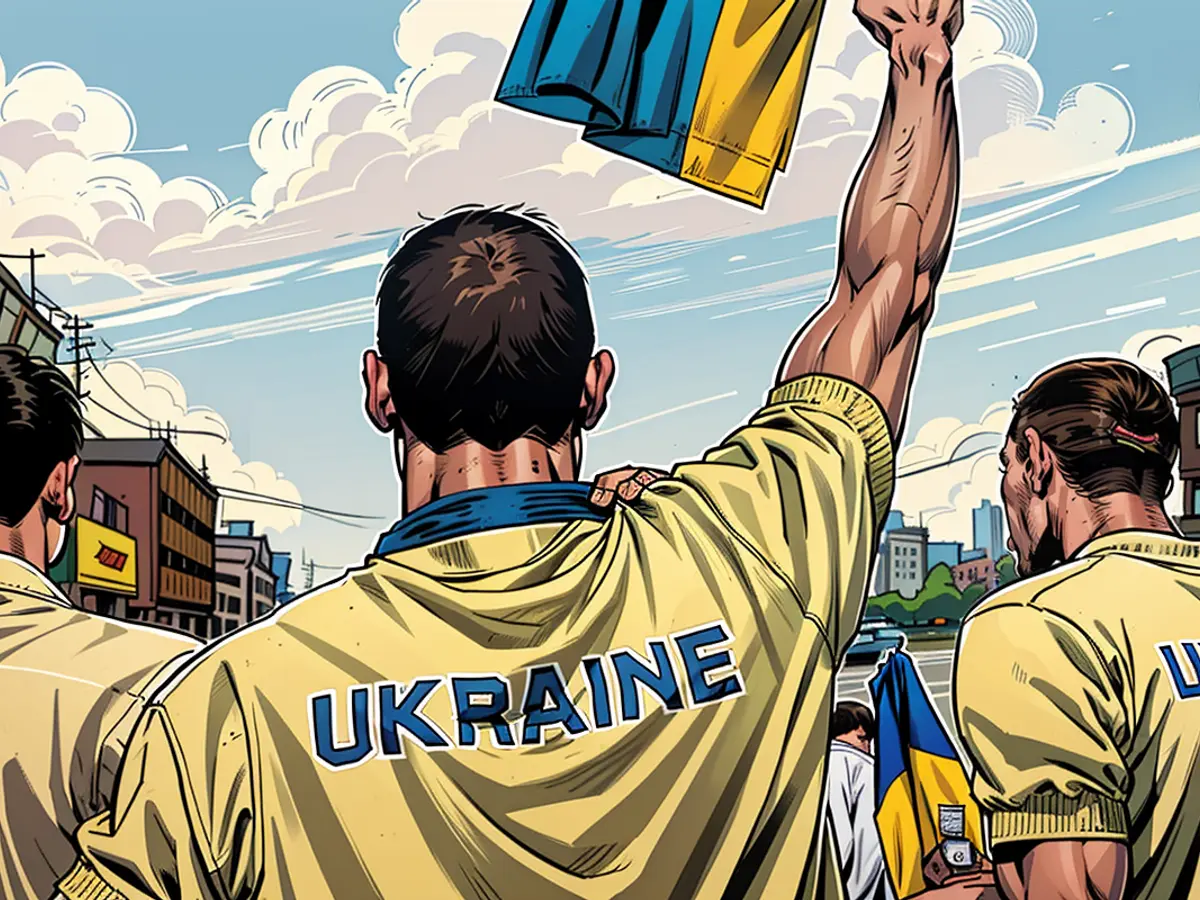Olympic worry case: IOC decision on Winter Games
Even Thomas Bach paints his Olympic case of concern in dark colors. The President of the International Olympic Committee takes a very worrying, even dramatic view of the future of the Winter Games due to the influence of climate change.
The rapidly dwindling circle of snow-sure hosts, the rejection of citizens in potential candidate countries or the strict "no" from politicians have made the IOC's search for hosts for future winter editions considerably more difficult. On Wednesday, the IOC leadership could now make a delayed preliminary decision on the awarding of the 2030 and 2034 Winter Games.
The three-day meeting of the Executive Committee in Paris will reportedly see four candidates enter the race. Following the rejection of previous favorites such as Sapporo and Vancouver, Olympic projects from France, Sweden and Switzerland as well as Salt Lake City in the USA are likely to be in the running. The 2002 host Salt Lake is as good as set for 2034, so the other interested parties will probably have to hope for 2030.
Flood of rejections for the 2030 Winter Games
The question now is: which of them will make it into the so-called targeted dialog with the IOC selection commission and thus become the preferred candidate of the ring circle? In the new bidding process, which many consider to be more opaque than previous award processes, this vote has almost decided who will host the Games. At least that was the case when the IOC declared Brisbane to be the preferred candidate for the 2032 Summer Games in 2021, thus also making a mockery of the Rhine-Ruhr project.
The selection process for the 2030 Winter Games should have been completed long ago. But then the IOC received a hail of rejections. Canada's metropolis of Vancouver received no guarantees for state funding. Japan's Sapporo decided not to make an attempt due to the turmoil surrounding the corruption scandal surrounding the Summer Games in Tokyo. After its failed bids for 2018 and 2022, Munich is no longer interested in hosting the Winter Games. The city now only wants to bid for the Summer Games.
In an emergency, the IOC postponed the awarding of the winter edition after next by a year and probably encouraged some doubting candidates to give it a try after all. Most recently, the Swiss sports parliament gave the green light for a bid just last week. "Winter Games in Switzerland would be a huge booster for our country," said Sports Minister Viola Amherd.
Sustainable concepts are in demand
In fact, the decentralized concept encompasses several regions throughout the country in order to exclusively use existing competition venues. As there is no suitable speed skating hall, Inzell in Bavaria could come into play here. Lausanne is being discussed for the opening ceremony, followed by Bern for the closing ceremony.
Stockholm and the French bid are pursuing a similar approach. In Sweden, Falun, Are and Östersund would host competitions in addition to the capital. The sledding events would go to Sigulda in Latvia and speed skating to Norway. "This will be a completely different kind of Olympic Games," said Sweden's Sports Minister Jakob Forssmed.
France is entering the race with a combination of the former winter hosts Chamonix (1924), Grenoble (1968) and Albertville (1992) as well as Nice. Here too, the speed skating competitions can be held abroad.
Thanks to these sustainable concepts, a majority of the citizens, who have mostly been critical of the IOC in the past, could be won over to the billion-euro spectacle of the Winter Games, the interested parties argue. However, there have not yet been any referendums on the current plans in Sweden, France or Switzerland.
Dramatic impact of climate change
The IOC cannot wait much longer on the awarding issue. At the General Assembly in Mumbai in October, the governing body decided to name the hosts for the 2030 and 2034 Games next year in one fell swoop. In doing so, the IOC also wants to give itself peace of mind in order to settle the long-term future of the Winter Games. "This is a very complex issue and we need a little more time to address it in the right way," said IOC boss Bach.
According to researchers' calculations, only ten countries will still be snow and ice-safe enough for the Winter Olympics by 2040. "We need to tackle this dramatic impact of climate change on the Winter Games very quickly," said Bach.
Consideration is being given to changing the competition program as well as a rotation system for the hosts. The Winter Games could then be held alternately in just a few locations with existing competition venues and guaranteed frosty weather.
- Amidst the concerns raised by Thomas Bach about the impact of climate change on the Winter Games, several potential hosts for the 2030 and 2034 editions have come forward, including Olympic projects from France, Sweden, Switzerland, and Salt Lake City. [IOC, Winter Games]
- Recognizing the dramatic impact of climate change on winter sports, the IOC is considering altering the competition program and implementing a rotation system for future Winter Games, potentially limiting them to a few locations with reliable snow conditions. [Sports policy, Olympia, IOC, Winter sports, Thomas Bach]
Source: www.dpa.com






